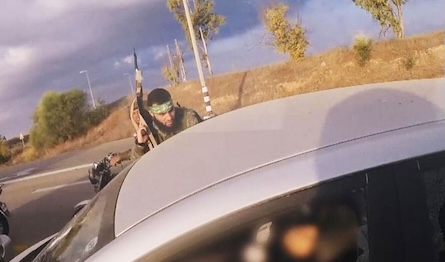TIFF Reverses Decision, Will Screen Controversial October 7 Documentary After Initial Concerns

The Toronto International Film Festival (TIFF) has made a significant U-turn, announcing it will proceed with the screening of a documentary detailing the events of October 7, 2023, in Israel. The decision follows an initial postponement due to concerns regarding the use of footage reportedly captured by Hamas militants using bodycams.
The controversy arose when TIFF initially stated it couldn't show the film because it hadn’t received clearance for the use of the Hamas-captured footage. This sparked considerable debate and scrutiny, with questions raised about the festival's responsibility to present important, albeit sensitive, perspectives on the ongoing conflict.
The filmmakers, whose names haven't been widely released to protect their safety and the integrity of the film, reportedly worked extensively to secure the footage, which they believe is crucial for understanding the events of that day. They argued that excluding the footage would present an incomplete and potentially biased account of what transpired.
Following discussions with the filmmakers and legal counsel, TIFF reversed its decision. A statement released by the festival acknowledged the complexities of the situation and affirmed its commitment to showcasing diverse perspectives, even when dealing with highly sensitive material. The statement read, “TIFF is committed to presenting films that reflect a wide range of perspectives and experiences. After careful consideration and consultation with legal counsel, we have determined that we can proceed with the screening of this film.”
The documentary promises to offer a raw and unflinching look at the October 7th attacks, drawing on a combination of eyewitness accounts, security camera footage, and the aforementioned bodycam recordings. It aims to provide a deeper understanding of the events, the motivations behind them, and the human cost of the conflict. However, the inclusion of Hamas footage has undoubtedly added a layer of complexity and controversy to the film’s presentation.
This reversal highlights the challenges faced by film festivals when navigating politically charged content. It raises questions about the balance between artistic freedom, ethical considerations, and the potential for causing offense or amplifying harmful narratives. TIFF's decision to ultimately screen the film suggests a willingness to grapple with these complexities and to provide a platform for difficult conversations.
The screening is expected to draw significant attention, both from the film industry and from the broader public. It’s likely to reignite discussions about the role of media in covering conflicts and the responsibility of filmmakers to present accurate and nuanced portrayals of complex events. The film’s impact remains to be seen, but its mere existence and subsequent screening have already sparked a vital and necessary debate.
For those attending the festival, tickets for the screening will be highly sought after. The controversy surrounding the film has only amplified its appeal, making it a must-see event for many. It’s a testament to the power of cinema to provoke thought, challenge perspectives, and shed light on even the most difficult subjects.






